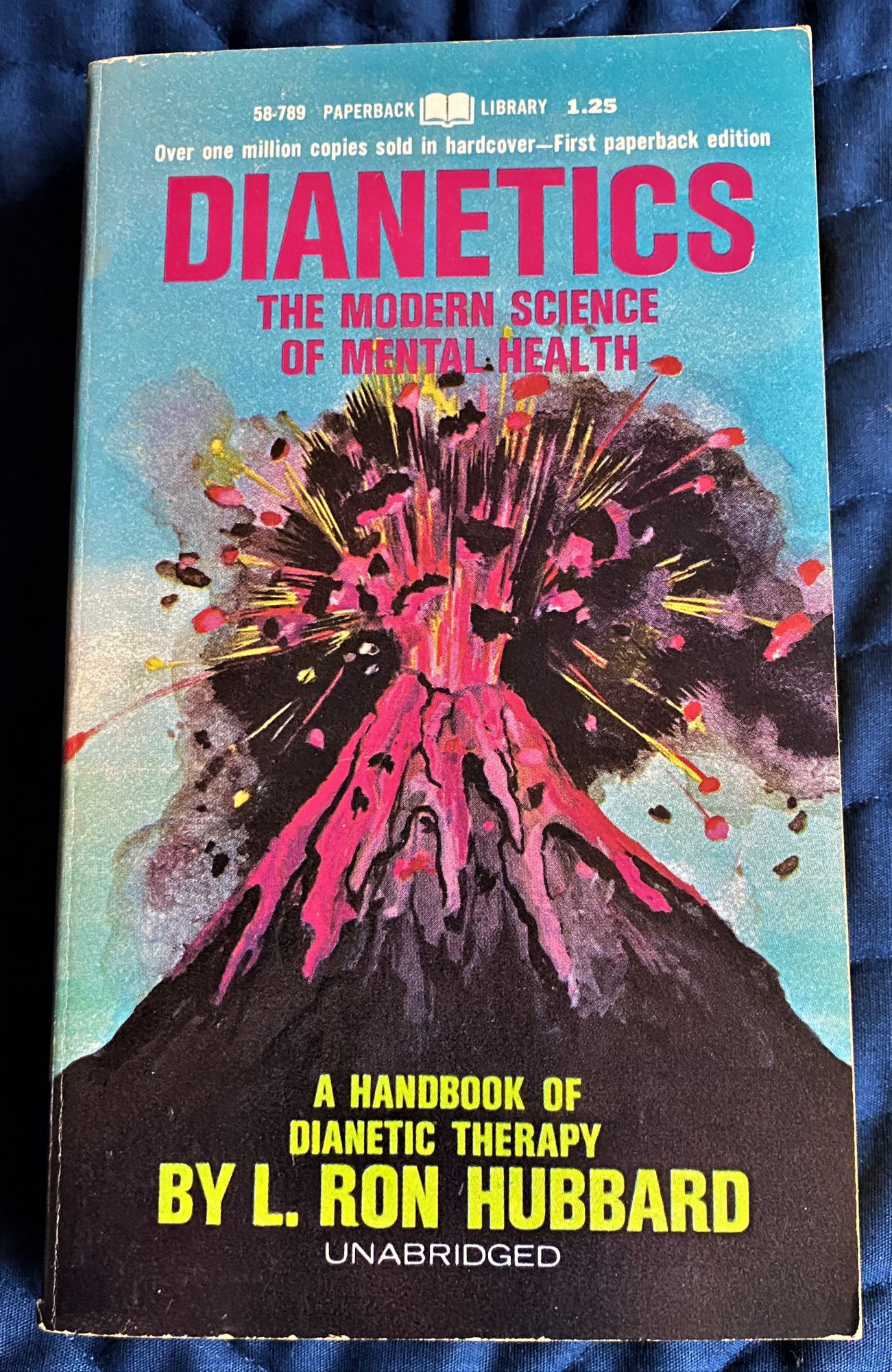9 Simple Techniques For Dianetics
9 Simple Techniques For Dianetics
Blog Article
Some Ideas on Dianetics You Should Know
Table of ContentsSome Known Questions About Dianetics.Some Known Incorrect Statements About Dianetics Dianetics Fundamentals Explained10 Simple Techniques For Dianetics
I couldn't ever before not intend to receive anything that enters your mind for you- if it was otherwise, I wouldn't be sitting below with you, doing this. I not only could never have a problem, or not wish to listen to something that comes to mind for you, however I'm totally excited to know every idea, every idea, every image or feeling that emerges or manifests for you- do not ever believe otherwise, and if for some reason you do, please simply allow me understand! Occasionally, you may have a thought, and photo, idea or event pop up that does not seem to answer the inquiry, or connect to it, yet nevertheless, constantly do tell me about it, and as we proceed, the significance will certainly emerge for you.This is inherent in the basis of processing, and the subject of this discussion: the fundamental functions of the counselor and the client: The basic function of the counselor is, in contrast to "common training", not to regulate, which indicates to apply and/or inhibit, yet to rather work from the basis of EMPOWERING THE CUSTOMER.

The 6-Second Trick For Dianetics
John Mcmasters expressed this fundamental reality wonderfully well in among his talks on Power processing, in which he clarifies how he was asked what this "unique knack" was that he had for providing such excellent sessions; he needed to assume concerning that for a minute, and detected that it was what he had not been doing, in addition to what he was doing: he had not been assessing, judging, computing, or in truth, creating any kind of ideas, allow alone spoken expressions, after giving the command and while waiting on the computer to complete their solution to their contentment; he was, merely and only, being present with the computer, and completely interested.
The role of the therapist, demonstrated; that was his "unique knack". I have had my own experience which educated me this well, very early on in the game. In 1982, having actually lately finished my training and teaching fellowship on New Period Dianetics, I was running this on a COMPUTER, and there was a point their explanation in the session where (being you could check here a little bit wet behind the ears not yet having several hours under my belt as a professional auditor) the computer seemed to be "taking too lengthy" to express anything verbally after I gave him a command.
This key became one of the most useful contribution that John ever made to the topic of therapy or auditing (Dianetics). In my humble viewpoint, it is the best contribution that anybody has ever before made to these subjectsthe application is entirely non-judgemental, non-evaluative, and empty of any type of idea, suggestions or opinion.no preconceived program for individuals, or 'levels' that they have to do
In Scientology we prided ourselves on not evaluating for people. All that actually indicated was that the auditor did not Vocally evaluate for the PC in session.
Not known Incorrect Statements About Dianetics

Any person that had actually ever before seen John audit might not help yet see an one-of-a-kind quality in his auditing."The customer's fundamental role is to be there with the function of relocating in the direction of their spiritual goals, and to easily read this and completely share and experience whatever materializes for them in responding to the questions and implementing the directions in the processing.
This is something to process as needed. However also, individuals regularly have previous experience and/or brainwashing in auditing/processing which, in some ways, and to some degrees, really misinforms them right into mindsets, ideas and actions patterns that avoid the complete awareness of these roles, therefore they will tend to inhibit the expressing of what comes to mind, as in the examples offered over. * The very first, and maybe primary instances of mis-indoctrination leading to less than totally smooth and effective sessions, can be discovered in particular aspects of the training regimens, or "TR's":"TR's" are commonly a person's initial, or at least early, experience in Scientology, and while I will go on to explain what I see as the defects in concept and technique, nevertheless, have a tendency to be substantially healing, done as they are offered (Hubbard insists that "TR's are not refining, they are educating", however factually, they are both handling AND training)
Alan Walter made comparable observations, and enhanced these with his "Existence Processes". There is no "flunking", and no denial of the fact of this being processing. The emphasis, as it ought to be, is on experiencing the other individual's existence. All the indications which obtain a "flunk" in doing "TR-0" are merely the being's efforts to stand up to the various other individual's presence, and instead than being pestered and nagged with "Flunk", which imposes "failing!" on the being, one just needs to be motivated to "stick their feet in the water a little much deeper", to progressively rehabilitate their capacity and determination to completely share and experience "being below", or "presence", with others.
The Main Principles Of Dianetics

Report this page